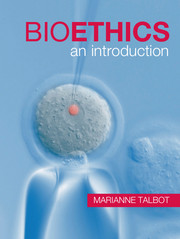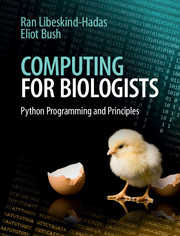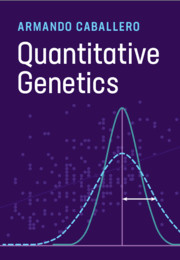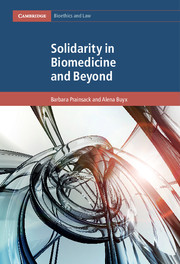Genetic Suspects
Global Governance of Forensic DNA Profiling and Databasing
- Editors:
- Richard Hindmarsh, Griffith University, Queensland
- Barbara Prainsack, Brunel University
- Date Published: August 2010
- availability: Available
- format: Hardback
- isbn: 9780521519434
Hardback
Other available formats:
Paperback, eBook
Looking for an inspection copy?
This title is not currently available on inspection
-
As DNA forensic profiling and databasing become established as key technologies in the toolbox of the forensic sciences, their expanding use raises important issues that promise to touch everyone's lives. In an authoritative global investigation of a diverse range of countries, including those at the forefront of these technologies' development and use, this book identifies and provides critical reflection upon the many issues of privacy; distributive justice; DNA information system ownership; biosurveillance; function creep; the reliability of collection, storage and analysis of DNA profiles; the possibility of transferring medical DNA information to forensics databases; and democratic involvement and transparency in governance, an emergent key theme. This book is timely and significant in providing the essential background and discussion of the ethical, legal and societal dimensions for academics, practitioners, public interest and criminal justice organisations, and students of the life sciences, law, politics, and sociology.
Read more- Reflects the interdisciplinary nature of the subject with contributions from experts in wide-ranging fields, including law, politics, and science and technology studies
- Case studies from around the world show how governance issues differ across cultures and what common patterns of global genomic governance can be discerned
- Discusses the social, ethical and political issues surrounding this field, including human rights and liberties, highlighting unsolved governance issues while demonstrating the potential contribution of DNA technologies
Reviews & endorsements
'… tease[s] out a number of key themes that are not only relevant to current academic debates but are also significant in general public discussions on the role and parameters of the police use of DNA and genetic technologies. Written in an accessible and lucid style … suitable for a range of readers from policy makers and legal professionals to anyone interested in the contemporary practices of using science in law enforcement.' Genomics, Society and Policy
See more reviews'… this compilation of essays makes Genetic Suspects an interesting read for anyone interested in the growing use of DNA evidence in legal systems around the world.' Yale Journal of Biology and Medicine
Customer reviews
Not yet reviewed
Be the first to review
Review was not posted due to profanity
×Product details
- Date Published: August 2010
- format: Hardback
- isbn: 9780521519434
- length: 370 pages
- dimensions: 235 x 157 x 20 mm
- weight: 0.72kg
- availability: Available
Table of Contents
List of contributors
About the contributors
Foreword Sheila Jasanoff
Acknowledgments
1. Introducing Genetic Suspects Richard Hindmarsh and Barbara Prainsack
Part I. Key Areas in DNA Profiling and Databasing:
2. Key issues in DNA profiling and databasing: implications for governance Barbara Prainsack
3. Forensic utilization of voluntarily collected DNA samples: law enforcement versus human rights Elazar Zadok, Gali Ben-Or and Gabriela Fisman
4. Base assumptions? Racial aspects of US DNA forensics Harriet A. Washington
5. Health and wealth, law and order: banking DNA against disease and crime Richard Tutton and Mairi Levitt
6. DNA profiling versus fingerprint evidence: more of the same? Simon A. Cole and Michael Lynch
Part II. National Contexts of Forensic DNA Technologies and Key Issues:
7. DNA databases and the forensic imaginary Robin Williams
8. Partners in crime: on the use of forensic DNA technologies in Austria Barbara Prainsack
9. Inquisitorial forensic DNA profiling in the Netherlands and the expansion of the forensic genetic body Victor Toom
10. DNA - the Nor-way: black boxing the evidence and monopolising the key Johanne Yttri Dahl
11. Portuguese forensic DNA database: political enthusiasm, public trust and probable issues in future practice Helena Machado and Susana Silva
12. On trial! Governing forensic DNA technologies in the United States Jay D. Aronson
13. Biosurveillance and biocivic concerns, from 'truth' to 'trust': the Australian forensic DNA terrain Richard Hindmarsh
14. Finding the balance: forensic DNA profiling in New Zealand Johanna S. Veth and Gerald Midgley
15. Forensic DNA profiling and databasing: the Philippines experience Maria Corazon De Ungria and Jose Manguera Jose
16. Conclusion: beyond borders - trends and challenges in global forensic profiling and databasing Barbara Prainsack and Richard Hindmarsh
Index.
Sorry, this resource is locked
Please register or sign in to request access. If you are having problems accessing these resources please email [email protected]
Register Sign in» Proceed
You are now leaving the Cambridge University Press website. Your eBook purchase and download will be completed by our partner www.ebooks.com. Please see the permission section of the www.ebooks.com catalogue page for details of the print & copy limits on our eBooks.
Continue ×Are you sure you want to delete your account?
This cannot be undone.
Thank you for your feedback which will help us improve our service.
If you requested a response, we will make sure to get back to you shortly.
×




